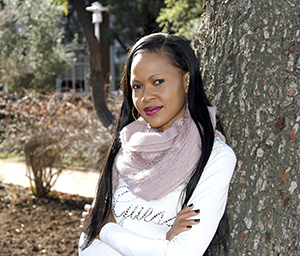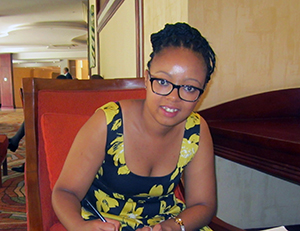Latest News Archive
Please select Category, Year, and then Month to display items
![]()
With the University of the Free State (UFS) academic programme suspended and following guidelines by the UFS Coronavirus (COVID-19/SARS-CoV-2) Task Team to minimise the gathering of people in one place, all UFS libraries will be closed from Friday 20 March to Monday 13 April 2020.
During this time, staff and students will not have any access to the following campus and branch libraries of the UFS Library and Information Services:
• Sasol Library (Bloemfontein Campus)
• Neville Alexander Library (South Campus)
• TK Mopeli Library (Qwaqwa Campus)
• Frik Scott Medical Library (Bloemfontein Campus)
• Music Library (Bloemfontein Campus)
The university community is advised as follows:
• Use Wednesday (18 March) and Thursday (19 March) to borrow books you might need during the long recess. During these two days, students are advised to take precautionary measures and avoid sitting in groups that might compromise their health.
• During this time, all due dates for borrowed material will be automatically extended, no late fines will be charged, and patrons can return material when libraries reopen.
• Please make use of the ‘Ask-a-Librarian’ service for any assistance you might require (go to the UFS Library and Information Services website – click Library Services – click Ask-a-Librarian); OR use the UFS Library social media.
• The UFS Library and Information Services will also be available on a new ‘LiveChat’ service accessible here (listed under Resources – LibGuides). With this service, you can connect ‘live’ with your information librarian.
• All planned activities for the South African Library Week are postponed until further notice.
Trauma, Forgiveness, and Reconciliation Studies attracts global attention
2016-06-27

Lerato Machetela is on her way to
Ghent University in Belgium where
she will spend 10 months working
alongside experts in the field of
historical trauma.
Photo: Eugene Seegers
Research excellence is one of the major driving forces at the core of the University of the Free State (UFS). This striving for academic distinction has found embodiment within Trauma, Forgiveness, and Reconciliation (TFR) Studies. Headed by Research Fellow and Senior Research Professor Pumla Gobodo-Madikizela, the research unit is raking in achievements consistently.
Cornell University Distinguished African Scholar Award
Leading by example, Prof Gobodo-Madikizela received the prestigious 2016 Distinguished African Scholar Award from Cornell University recently. Being honoured with this award affirms an unusual depth of knowledge and experience in a field related to the recipient’s own work. Through this award, Prof Gobodo-Madikizela is now also affiliated with the Institute for African Development and the Psychology Department at Cornell University.
Ghent University fellowship in historical trauma
Another member of TFR has caught international attention. Lerato Machetela – a PhD student at the research unit – received an invitation from scholars at Ghent University in Belgium. Machetela will leave in September, where she will spend ten months in Ghent with experts in the field of historical trauma. She will be affiliated to their university’s Cultural Memory Studies Initiative and the Psychology Department. When Machetela submitted her PhD proposal on transgenerational transmisison of trauma among the youth in Jagersfontein to the UFS Psychology Department panel, “it was hailed as a unique project, and a first for the department,” Prof Gobodo-Madikizela says.

Naleli Morojele conducting the research
in Rwanda that has formed the basis of
her new book, Women Political Leaders
in Rwanda and South Africa: Narratives
of Triumph and Loss.
Book explores triumph and loss of female political leaders
TFR cultivates thriving authors actively, the latest being Naleli Morojele, who is pursuing a PhD in the field of Political Studies. Soon, Morojele will be launching her book, Women Political Leaders in Rwanda and South Africa: Narratives of Triumph and Loss. Through the stories of significant female Rwandan and South African leaders, the reader gains insight into these women’s early-life experiences, struggles, and successes. Perhaps even more pertinently, Morojele’s book also exposes the ways in which gender inequality still works to smother their roles as citizens and politicians.